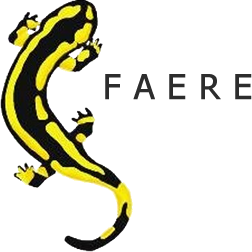CIFRE fellowships scheme: Valorization of organic matter and circular economy: the case of railway plant waste in Ile-de-France
This thesis aims to better understand the obstacles and levers of the adoption of virtuous practices for the business environment by taking as a case study the circular economy approach via the recovery of plant waste within the SNCF Group.
Initially, the in-depth study of the sectors for the recovery of vegetable waste made it possible to characterize the potential of vegetable waste and to identify the established practices and sectors within which this vegetable waste could be recovered locally. It will lead to the construction of a maintenance guide making it possible to identify the needs and constraints of the SNCF Group in terms of controlling vegetation and recycling vegetable waste. The purpose of this qualitative approach is to do better despite the organizational constraints of the company as well as the difference in points of view depending on whether organic matter is considered from the perspective of the commercial, legal, maintenance or exploitation. An extension of the survey to SNCF’s partners and residents (associations, local authorities, etc.) will provide a better understanding of how this transition can be carried out virtuously in a local context. We know, in fact, that there can be a divergence between values shared at the national level (energy autonomy, the fight against climate change, etc.) and negative judgments at the local level (Not In My BackYard).
Once the social and organizational context has been established, it will then be possible to assess the environmental impacts of the recovery of plant waste from the SNCF Group and to characterize the possible socio-economic repercussions according to appropriate practices and existing channels. This evaluation will aim to shed light on the trade-offs between these different practices and sectors. It will also highlight the brakes and levers of the implementation of these environmentally friendly practices.
Finally, the analysis of the costs and possible gains in the short, medium and long term for the SNCF Group of these new vegetation maintenance practices with regard to current practices will make it possible to optimize this maintenance. The brakes and levers facilitating the implementation for the SNCF Group of the various practices will thus be explored.
For more information, please refer to the attached document (in French).
Job location : Campus Agro, 22 place de l'agronomie, 91120 PalaiseauNature of the job : PhD grant
Contact person : Caroline Orset,
Application deadline : 01/11/2022
Attached file : these_sncf_20221017.pdf
